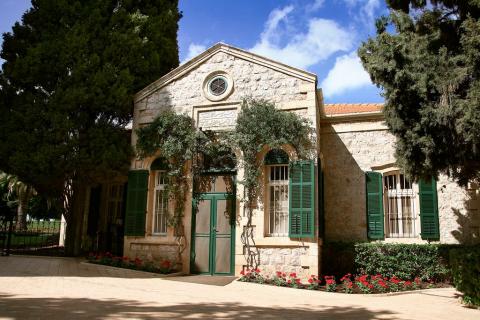The Governor of Baghdad at this time was a relative of my father, but his enemy on account of differences in religious opinion and family misunderstandings. This man, rendered uncomfortable by the sight of my father's increasing fame and influence, exerted himself to effect his removal from Baghdad. He caused representations to be made to the Shah of Persia that, whereas Beha Ullah had been driven out of Persia because of the harm threatened by his presence to the Mohammedan religion in that country, now he was injuring the religion even more in Baghdad, and still exerting his evil influence in Persia; and that therefore he ought to be removed to a place at a greater distance from that country, and one where he could do less harm.
These representations and suggestions he sent repeatedly to the Court of Persia, until at length the Shah was moved to use his influence with the Sultan of Turkey to have the Bábís transferred from Baghdad to Constantinople. An order to this effect was at length made by the Sultan.
When this news came to us, from which we inferred that my father would again be made a prisoner, we were thrown into consternation, fearing another separation. He was summoned before the magistrates. My brother imperiously declared that he would go in his stead; but this our father overruled, and went himself. Great numbers of his followers had assembled about our house, and these witnessed his departure with many demonstrations of grief, feeling that it was possible that he might not return,
The magistrates expressed great sorrow to my father; they said that they respected and loved him, that they had not instigated the order, but that they were powerless to suspend or modify it, and must proceed with its execution. My father remained in conference with them nearly all day, but could do nothing to avert the catastrophe. When he returned, he told us that we must prepare to set out for Constantinople in two weeks.
This report was like a death-knell to his followers, who were still gathered about the house. Many of them were Arabs; their fierce natures rebelled and they gave way to violent remonstrances. They implored the Blessed Perfection not to desert them. 'You are our shepherd,' they said; 'without you we must die.'
The next day they so overran the house that we could not prepare for the journey. Then the Blessed Perfection proposed to go with Abbas Effendi to the garden of one of our friends and live there in a tent till the time of departure, that the family might be able to proceed with the packing. This remark was repeated and misunderstood, and the rumour circulated among the believers that the Blessed Perfection was to be taken away alone. Then they came pouring in by hundreds, so wild with grief that they could not be pacified; and when my father started to leave the house with my brother they threw themselves upon the ground before him. One man who had an only child, which had come to him late in his life, stripped the clothes from the child's body and placing it at my father's feet cried, 'Naked I give you my child, my precious child, to do with as you will; only promise not to leave us in distress. Without you we cannot live.'
Then, as the only way in which to soothe his followers, the Blessed Perfection took all his family to the garden, leaving to friends the preparation of his household goods for the journey. Here we pitched tents and lived in them for two weeks. The tents made, as it were, a little village, that of my father, which he occupied alone, in the centre.
